Bucket List Road: Greenwood Rising
Published February 2022
By Nathan Gunter | 6 min read
After a decade at Oklahoma Today, Editor-in-chief Nathan Gunter is filling in the spots he's missed with his series, Bucket List Road.
It’s the details that’ll get you.
In 2009, I toured the United States Holocaust Memorial Museum in Washington, D.C. and realized something I’d always struggled to express: In our finite human nature, it’s hard to hold in our minds and hearts the bigness of historic tragedies. More than six million Jewish Europeans were murdered during the Holocaust, but statistics like that are hard to comprehend.
But it was a detail: At one spot, I looked up and saw a few piles of everyday objects—glasses, shoes, and toothbrushes that had belonged to people who were killed in concentration camps. Nothing extraordinary, but it was in their quotidian nature that I connected to the tragedy. These were human people, and they brushed their teeth and lost their glasses and tied their shoes and slept and ate and walked and minded their own businesses and didn’t deserve to be slaughtered en masse. We so often speak of history in abstractions; the presence of this human ephemera blazed the Holocaust onto my soul.
I found myself back in that emotional space in December, when Oklahoma Today Photo Editor Megan Rossman and I had a free morning in Tulsa and decided to make our first trip to Greenwood Rising, the legacy project of the 1921 Tulsa Race Massacre Commission. After we finished our May/June 2020 issue—complete with a special section about the Massacre—I had some mourning and thinking to do; it was a hard story to tell, made all the harder by how absolutely necessary it is. But Greenwood Rising synthesized and elevated that mourning and thinking and necessity.
One of the first things I noticed were the words of two of my favorite Americans: Billie Holiday and Maya Angelou. Near the entrance, visitors can see the words of the 1939 Billie Holiday tune “Strange Fruit,” which was controversial in its day for its raw, unfiltered imagery of an American lynching. Next, during an introduction video, we hear Maya Angelou reading “And Still I Rise.” These are mere tastes of what’s to come. Blending historic research, modern storytelling, and cutting-edge technology, this interpretive center takes visitors through Greenwood before-and-after, starting at a Black barber shop:
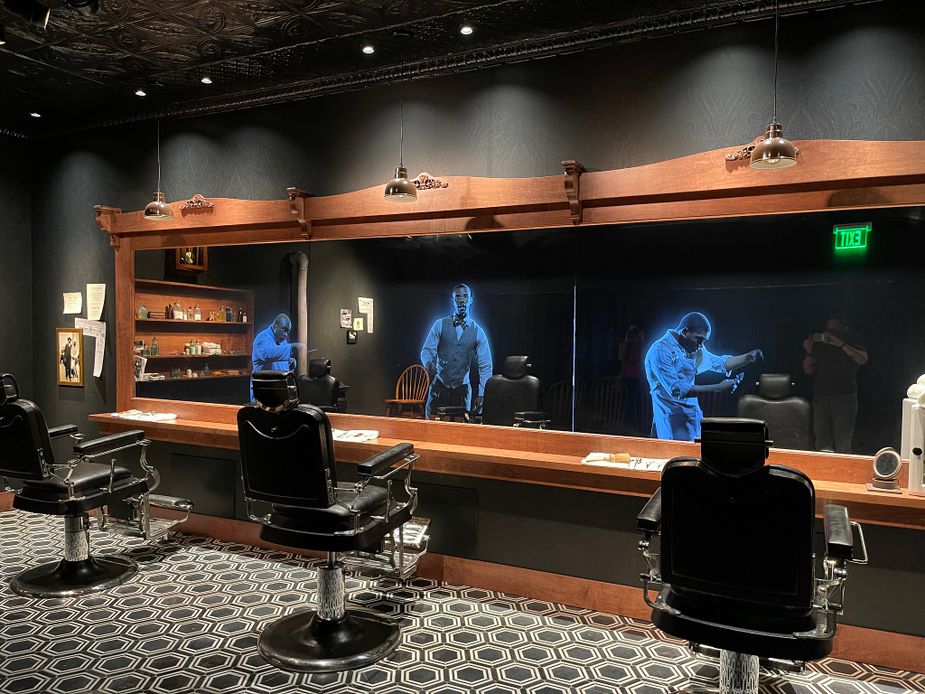
Photo by Nathan Gunter
This sets the scene, showing visitors that in its 1910s heyday, Greenwood was above all else a community: a group of people living and working and going about their lives in proximity, gathering in places like barber shops and churches and restaurants. But as we all know, that community met a grisly, unjust end. And stepping out of the barber shop and through some interpretive exhibits, you come to a place where the world just . . . explodes:
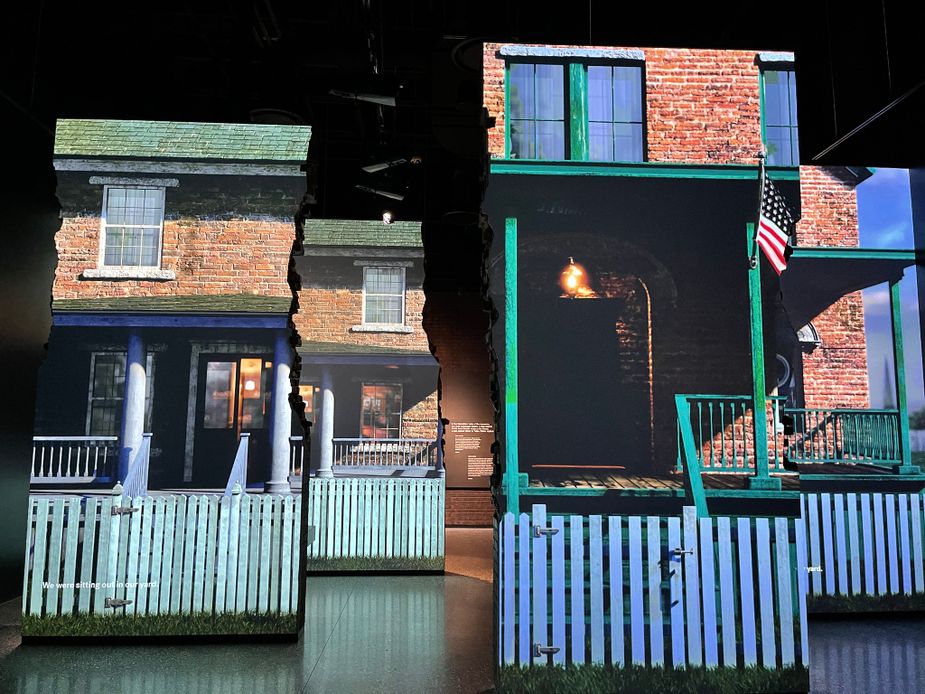
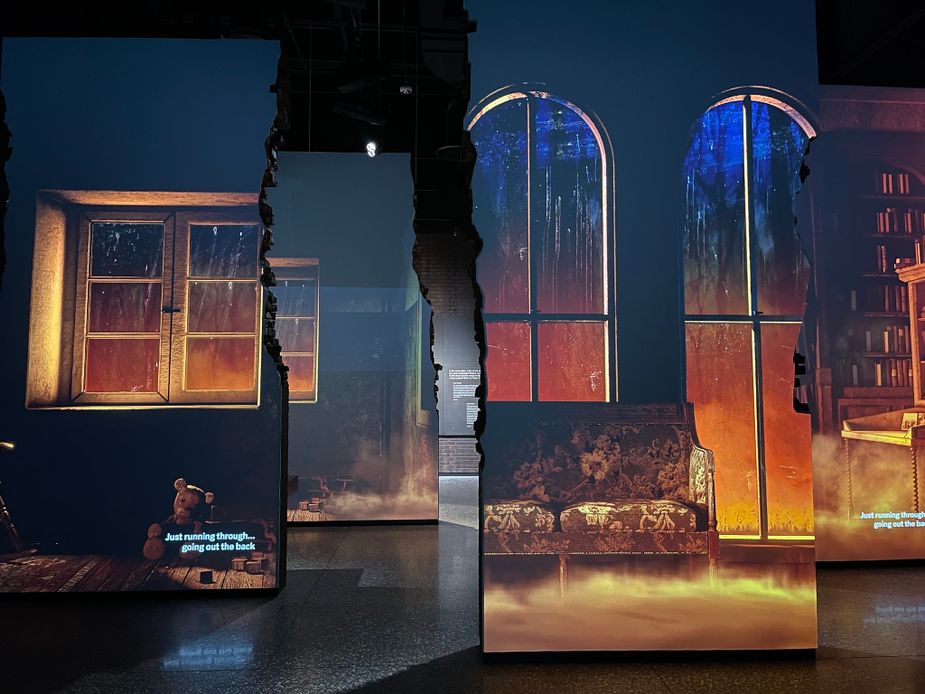
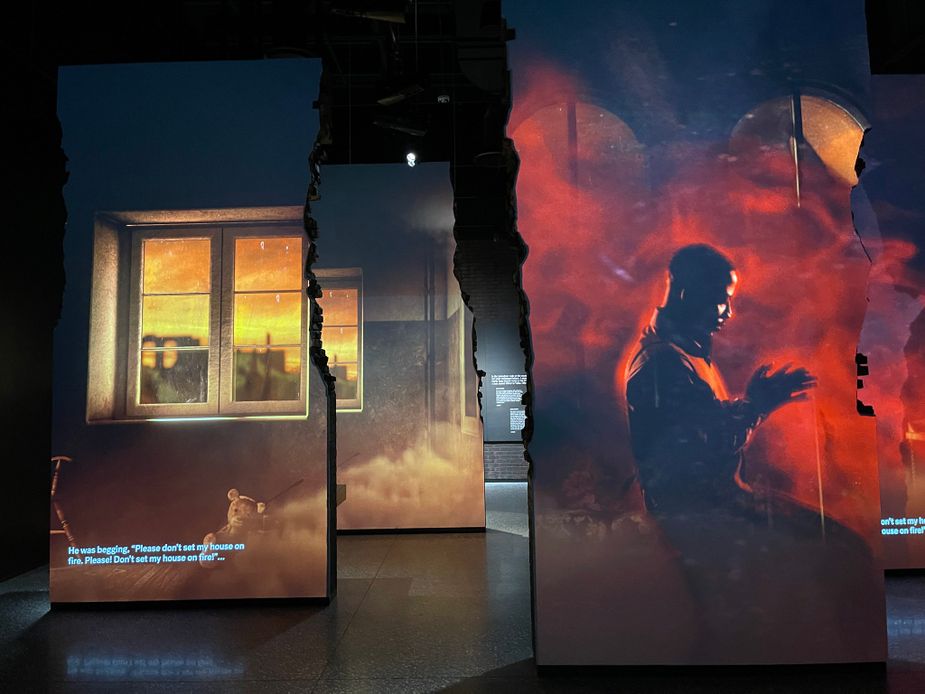
It’d be insincere to say I felt like I was there, but the exhibit is deeply affecting. You see the ominous light of torches begin to grow and watch as the family home in which you started suffers broken windows, then begins to burn, and then is simply gone, along with the rest of the neighborhood.
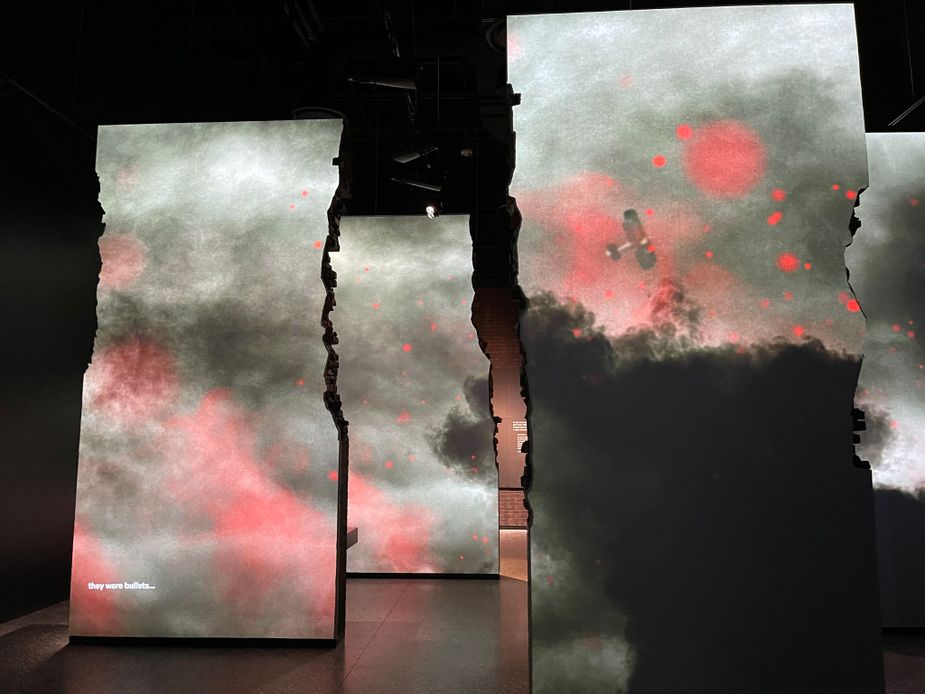
Imagine it: Your community obliterated in an instant because of a nothing emotion like bigotry. Hatred of something no one chose, no one can change, and that threatened no one. To visit Greenwood Rising and not experience a broken heart would be truly shocking. But it’s the good kind of broken heart, see: The one that opens you, lets the bad stuff pour out, lets compassion grow in its broken places.
Truly, this place is a marvel, and you must visit. In addition to other accolades, this year, USA Today named Greenwood Rising to its list of Best New Attractions in America. Along with the Oklahoma City National Memorial and the Black Kettle National Battlefield, to name just a couple, it is one of the holy places in Oklahoma, the places we go to look our history in the face with courage and boldness and say, “No more.”
"Bona-fried Star"
"Tuesday Trivia: March 1, 2022"
You May Like
Weekly Events Calendar: July 7-13, 2025
This week in Oklahoma: Go cosplay crazy in Tulsa; the Gatlin Brothers perform in Durant; and celebrate Woody Guthrie in Okemah.
This week in Oklahoma: Go cosplay crazy in Tulsa; the Gatlin Brothers perform in Durant; and celebrate Woody Guthrie in Okemah.
Oklahoma Today Podcast: June 30, 2025
OKC! OKC! OKC! The Thunder won it all, folks! This week's special episode is presented from the teams NBA Championship Parade from downto...
OKC! OKC! OKC! The Thunder won it all, folks! This week's special episode is presented from the teams NBA Championship Parade from downtown Oklahoma City.
A Pink Paradise
Any book store is a good time, but this one's got a specialty soda bar.
Any book store is a good time, but this one's got a specialty soda bar.










